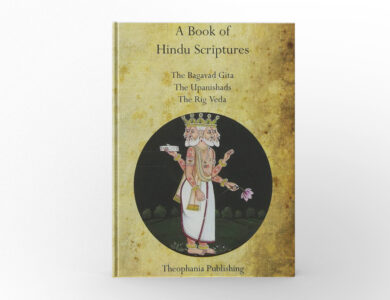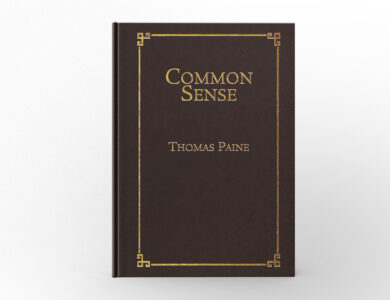
The Bible is more than just a book; it is a profound collection of sacred texts that has influenced countless individuals and cultures throughout history. As the central religious scripture for Christianity and a cornerstone in the Judaic tradition, The Bible offers an unparalleled depth of spiritual, historical, and moral insights.
Author’s Background
The Bible is not the work of a single author but rather a compilation of writings by multiple authors over centuries. Traditionally believed to have been inspired by God, its authors include figures such as Moses, David, Solomon, Isaiah, and the Apostles of Jesus Christ. The texts were written in various languages, including Hebrew, Aramaic, and Greek, and were compiled over a span of about 1,500 years.
In Depth Summary
The Bible is divided into two main sections: the Old Testament and the New Testament. Each section encompasses a range of genres, including historical accounts, poetry, prophecy, and letters. Here’s a detailed overview of these two primary sections:
Old Testament Overview
Creation and Early Humanity
The Old Testament begins with the Book of Genesis, detailing the creation of the world, the first humans, and the early history of mankind. It includes the accounts of Adam and Eve, Noah’s Ark, and the Tower of Babel. These narratives set the stage for the emergence of God’s covenant with humanity.
Patriarchs and Covenant
Following Genesis, the Old Testament covers the stories of the patriarchs Abraham, Isaac, Jacob, and Joseph. It emphasizes the covenant between God and Abraham, promising that his descendants would become a great nation. The narrative continues with the Israelites’ enslavement in Egypt and their eventual liberation under Moses, culminating in the giving of the Law on Mount Sinai.
Historical Books and Prophecy
The historical books, including Joshua, Judges, Samuel, and Kings, recount the Israelites’ journey through the Promised Land, their establishment as a nation, and their struggles with sin and redemption. The prophetic books, such as Isaiah, Jeremiah, and Ezekiel, convey messages of warning, hope, and future restoration, reflecting God’s ongoing relationship with His people.
New Testament Overview
Life and Teachings of Jesus
The New Testament begins with the four Gospels: Matthew, Mark, Luke, and John. These texts chronicle the life, teachings, miracles, crucifixion, and resurrection of Jesus Christ. They provide a detailed account of His ministry and the establishment of Christianity as a new covenant.
Early Church and Apostolic Letters
Following the Gospels, the New Testament includes the Acts of the Apostles, which describes the early growth of the Christian church and the spread of the Gospel through the Roman Empire. The epistles, or letters, written by apostles such as Paul, Peter, and John, address theological issues, ethical guidelines, and practical advice for early Christians.
Apocalyptic Vision
The final book of the New Testament is Revelation, an apocalyptic vision attributed to John. It presents a vivid portrayal of the end times, the final judgment, and the ultimate triumph of good over evil. Revelation is known for its symbolic language and prophetic imagery.
Themes and Insights
Faith and Redemption
A central theme throughout The Bible is the concept of faith and redemption. The texts emphasize the importance of faith in God, the human condition of sin, and the promise of salvation. Both the Old and New Testaments explore how individuals and nations seek and receive forgiveness and reconciliation with God.
Covenant and Law
Another key theme is the covenant between God and His people, which is foundational to both the Old and New Testaments. The Old Testament details the laws given to the Israelites and their significance in guiding their relationship with God. The New Testament introduces a new covenant through Jesus Christ, focusing on grace and love rather than strict adherence to the law.
Morality and Wisdom
The Bible is also rich in moral and ethical teachings. Books such as Proverbs and Ecclesiastes offer wisdom on living a righteous life, while the teachings of Jesus in the Gospels provide practical guidelines for love, compassion, and forgiveness.
Personal Reflections
Engaging with The Bible is a deeply personal experience that can vary greatly depending on one’s background and beliefs. For many, it is a source of spiritual guidance and comfort, offering timeless wisdom and a sense of connection to a greater purpose. The stories, teachings, and prayers found within its pages continue to inspire and challenge readers to live in accordance with their faith and values.
Recommendation
For anyone interested in exploring spiritual and moral questions, understanding historical religious texts, or seeking personal growth, The Bible is highly recommended. Its profound teachings and rich narratives offer valuable insights into human nature, divine principles, and the pursuit of a meaningful life. Whether read as a religious text or as a literary and historical work, The Bible provides a wealth of knowledge and inspiration.
Impact and Legacy
The impact of The Bible on history, culture, and literature is immeasurable. It has shaped religious practices, inspired countless works of art and literature, and influenced social and ethical norms across the globe. Its teachings continue to resonate with millions of people, affirming its enduring relevance and profound significance.
Conclusion
The Bible stands as a monumental text that has profoundly influenced religious thought, moral philosophy, and cultural development. Through its rich tapestry of stories, teachings, and prophecies, it offers timeless wisdom and a deep connection to the divine. Its impact on individuals and societies underscores its importance as both a spiritual guide and a historical document.





